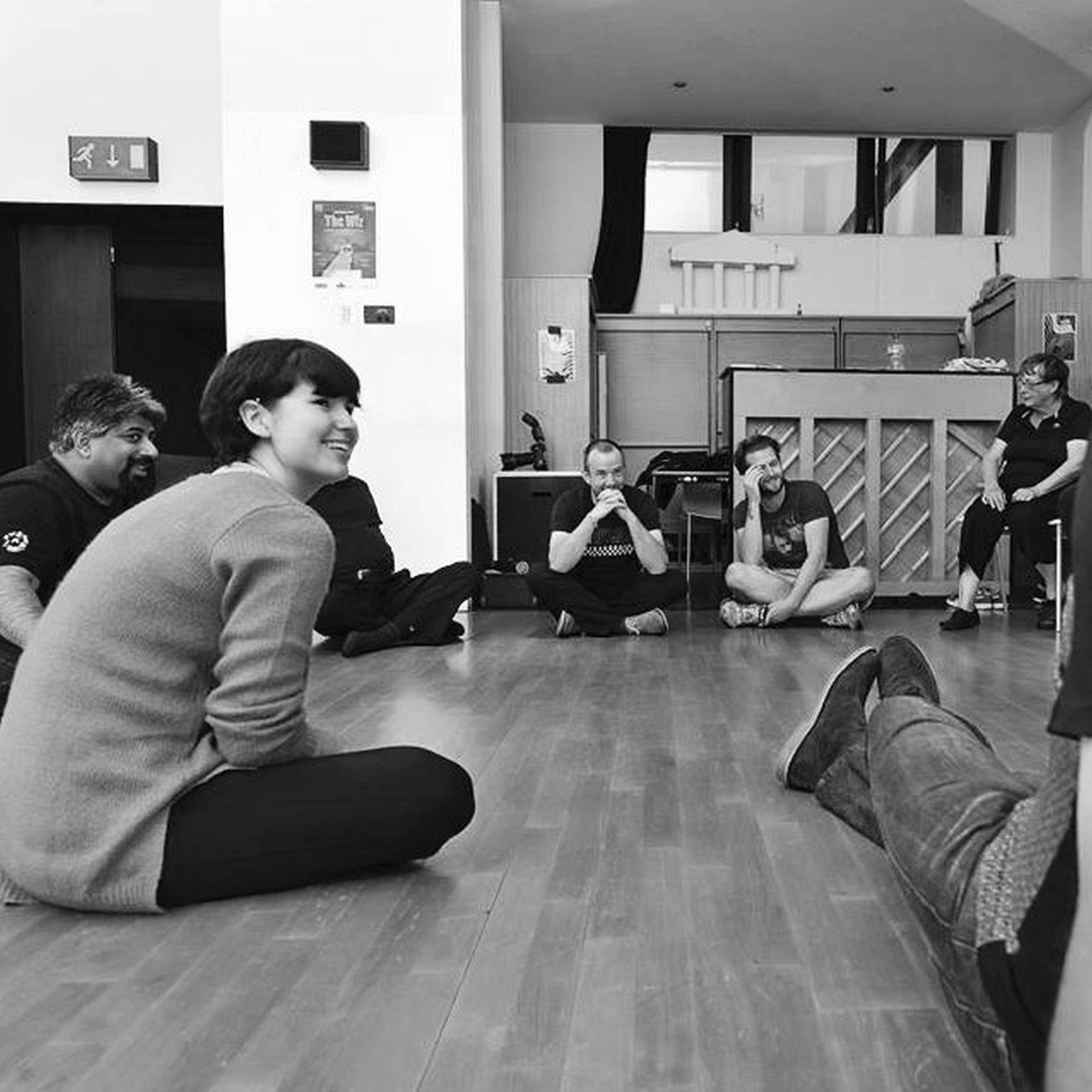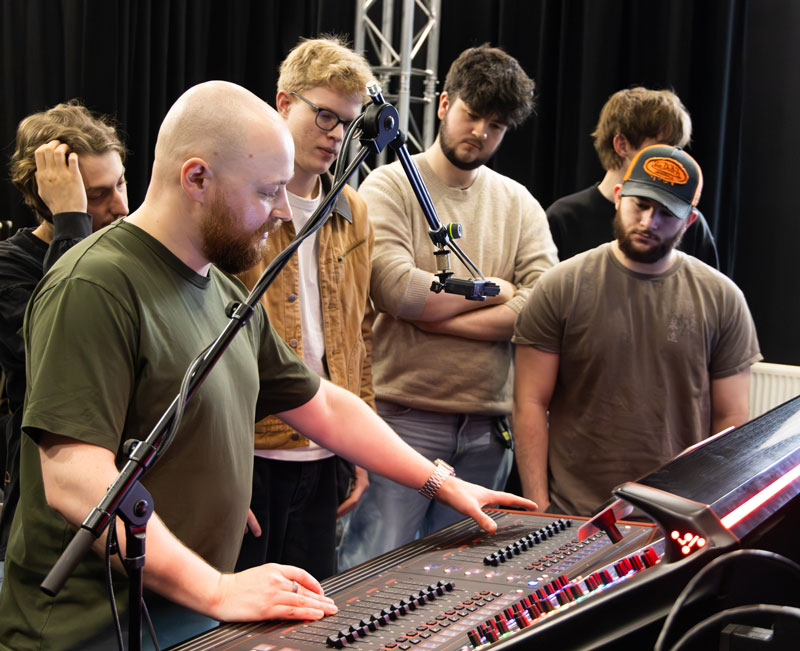The MA in Professional Practice: Theatre & Drama Facilitation allows students to maintain their professional practice while they refine the skills and techniques they need to elevate their career to a more specialised or strategic level.
It had its first intake of students in September 2020. Brendon Burns is course leader, he says: “It’s attracting two types of experienced practitioners. Those who have an established practice but want to move that practice on or those, who want the mastery that they’ve achieved to be accredited and recognised.”
This rings true for Clara Collett, who is a freelance facilitator and artist and is part of the first intake. “I’d reached a point where I felt I was ready to learn more and take things further.
“I wanted to be pushed into using my skills differently so I could work for a bigger organisation in maybe a strategic role or for myself rather than freelance."
As well as advanced facilitation skills, critical perspectives and enterprise, management and organisation modules, the one-year MA also allows students to develop areas of expertise in either working with young people, theatre outreach or socially engaged/issue-based work.
Course delivery is a mixture of distance learning, intense in-person teaching blocks and work-based learning. Brendon says when they were designing the course, they knew most professionals wouldn’t be able to take a year off to study. “But that can work to your advantage. The industry is rich with learning opportunities and being able to apply new skills, techniques and approaches to real-life situations is much more instructive than any project work you could do in a classroom.”
Student Georgia Tillery Randak is a director and freelance drama facilitator and a member of the BlackSheep Collective. She says being able to continue to work is vital. “If it was done in any other way, I don’t think I would have been able to commit to the MA. Stepping totally away from working and the organisation wouldn’t have been possible.”
Georgia also says being able to apply what she learns to her practice is already proving beneficial. “The work-based model has meant that I am growing as a theatre maker/practitioner and influencing the organisation, improving our work and reach and contributing to our success.”
LIPA is currently accepting applications for places on the 2021/22 MA in Professional Practice: Theatre & Drama Facilitation, which starts in September.
Brendon Burns, who also leads the Applied Theatre and Community Drama BA, wants the course to have a lasting impact on students. “I hope it refreshes their passion and drive for the job that they do.
“I also hope that the techniques and the reflective practice that we’ve built into the course, the lifelong self-teaching aspect, should remain with them for the rest of their career.”
Image: Georgia Tillery Randak at work with Black Sheep Collective CIC
It had its first intake of students in September 2020. Brendon Burns is course leader, he says: “It’s attracting two types of experienced practitioners. Those who have an established practice but want to move that practice on or those, who want the mastery that they’ve achieved to be accredited and recognised.”
This rings true for Clara Collett, who is a freelance facilitator and artist and is part of the first intake. “I’d reached a point where I felt I was ready to learn more and take things further.
“I wanted to be pushed into using my skills differently so I could work for a bigger organisation in maybe a strategic role or for myself rather than freelance."
As well as advanced facilitation skills, critical perspectives and enterprise, management and organisation modules, the one-year MA also allows students to develop areas of expertise in either working with young people, theatre outreach or socially engaged/issue-based work.
Course delivery is a mixture of distance learning, intense in-person teaching blocks and work-based learning. Brendon says when they were designing the course, they knew most professionals wouldn’t be able to take a year off to study. “But that can work to your advantage. The industry is rich with learning opportunities and being able to apply new skills, techniques and approaches to real-life situations is much more instructive than any project work you could do in a classroom.”
Student Georgia Tillery Randak is a director and freelance drama facilitator and a member of the BlackSheep Collective. She says being able to continue to work is vital. “If it was done in any other way, I don’t think I would have been able to commit to the MA. Stepping totally away from working and the organisation wouldn’t have been possible.”
Georgia also says being able to apply what she learns to her practice is already proving beneficial. “The work-based model has meant that I am growing as a theatre maker/practitioner and influencing the organisation, improving our work and reach and contributing to our success.”
LIPA is currently accepting applications for places on the 2021/22 MA in Professional Practice: Theatre & Drama Facilitation, which starts in September.
Brendon Burns, who also leads the Applied Theatre and Community Drama BA, wants the course to have a lasting impact on students. “I hope it refreshes their passion and drive for the job that they do.
“I also hope that the techniques and the reflective practice that we’ve built into the course, the lifelong self-teaching aspect, should remain with them for the rest of their career.”
Image: Georgia Tillery Randak at work with Black Sheep Collective CIC




